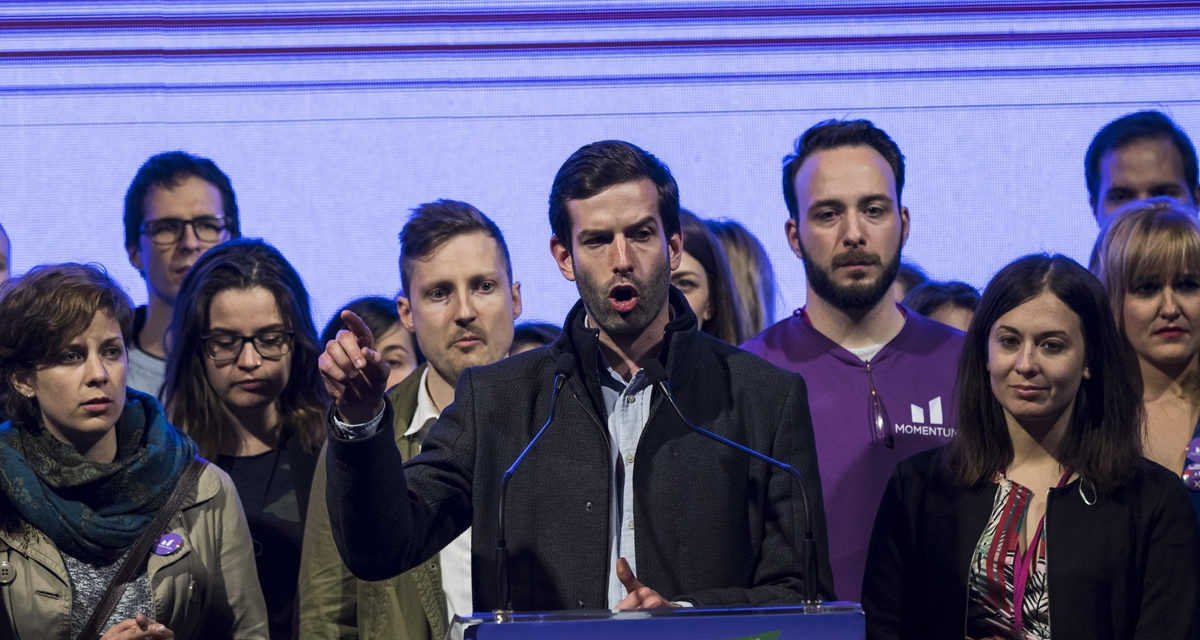Champagne is broken when some empire tries to educate, pity or punish Hungary. Written by Ervin Nagy.
Hungarian society has shifted to the right, and this is supported not only by the results of successive elections, but also by the palpable collective courage with which we assume our national identity. Nothing proves better that the government since 2010 has dealt with the power relations of post-communism, and the Hungarian nation has broken with the spirit of the two turbulent decades of the transition, that the externally controlled left (which can again be called a left-liberal block after the change of direction of Momentum) is not capable of real identity-building politics work out.
Only destruction remains.
Their dubious small joys, their minor victories, cannot be found in the success of the progressive views they represent, but in the fact that some empire tries to educate, pity or punish Hungary. That's when champagne is broken.
On the other hand, they only have reason to "celebrate" when they discover a perceived or real mistake on the right, the consequence of which (because the mistake has a consequence on the right!) is the greatest happiness for them.
They have no reason to rejoice because none of their political goals have been realized in the past decade. The reason for everything is to be found in the fact that they do not understand the spirit of the people.
They do not understand what the nation means as an identity-forming community.
There are precisely definable reasons why national belonging, national self-determination, preservation of the mother tongue and respect for traditions have an important identity-forming power in Central and Eastern Europe in general, and in Hungary in particular. Some of these are related to history, the spirit of the people and our geopolitical situation, but some are due to the proud, brave, sovereignist policy of the current government.
For the past five hundred years, Hungary has fought relentlessly for its sovereignty. We had to confront empires that either wanted to assimilate us, or to leach Hungarian national identity, and in the worst case, to wipe the country off the face of the earth. It is imprinted in our collective subconscious, that is, it lives on in the souls of the people.
We are a freedom-loving people, but freedom for us means not only the autonomy of this individual, but also the sovereignty of the nation.
The revolution and freedom struggle of 1956, as well as the system change, live vividly in the minds of the Hungarian people. This is why patriotism is an important identity-forming attitude. Just as the shock of the Trianon peace decree and the cure for it are important to us, so turning towards the Hungarians living beyond our borders, the feeling of belonging (which has grown stronger in recent years) cannot be ignored either.
This is what the externally controlled left cannot grasp. (Respect for the exception!) The genesis of the socialist party is an obstacle to understanding, and the Gyurcsánys never wanted to acknowledge that the community of the nation comes first in politics. For them, the goal is the unlimited autonomy of the individual and the creation of the United States of Europe. They want to work in that "project".
Momentum, on the other hand, believes that the next generation should be saved from national politics.
A dangerous vocation. They claim that the extent of national feeling experienced today is harmful, that nationalism itself is evil incarnate, that communal and traditional boundaries (such as nations, cultures, or the differences between men and women) tower over the individual as obstacles that must be deleted. Hence the liberal-based cult of destruction of Momentum. They call it popular education, community education, but in fact they are destructive.
Then they blink with silly expressions from choice to choice. In the worst case, those who do not vote for them, because they make their decision based on the love of national values, are called deluded, stupid people, or backward, unenlightened people.
We were always located on the edge of an empire, so they behaved and spoke to us condescendingly from the imperial centers. This was the case with Vienna and then Moscow in the last century, and the situation is different today, but the imperial superior tone has not changed. From Brussels and Washington, we are treated today as those to whom we must conform. And this - also due to the already mentioned historical reasons - provokes defiance from the freedom-loving Hungarian people.
In the end, actual political reasons also hide behind the fact that the feeling of belonging to the nation has become so important in the last decade.
In 2010, there was a political revolution, which Viktor Orbán called a "cabin revolution", which meant that we could finish the system change, replace the former communists allied with the liberal cultural elite and start nation building. We can leave behind us the feeling of life that "dare to be small" and, in Széchenyi's words, we can build an independent Hungary that "rotates around its own axis".
The author is the XXI. Analyst of the Century Institute












